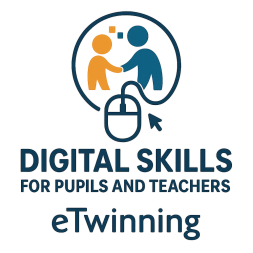March
AI Cultural Recipe Book: Taste of Tradition, Enhanced by AI
An eTwinning project aimed at students aged 11–15, using artificial intelligence to create an interactive, multicultural cookbook showcasing traditional recipes from partner countries.
Target Group:
Students aged 11–15 from various partner schools.
The project is conducted in English.
Recommended number of participants: 4–6 partner schools, with 10–20 students from each school.
Project Stages:
Introduction and exploration of culinary traditions (2 weeks):
Students research and present traditional dishes and ingredients characteristic of their countries.
They create visual or video presentations featuring popular recipes.
Creating international cooking groups (1 week):
Students are divided into international teams of 4–6 members.
Each group selects a specific type of dish (e.g., desserts, snacks, main courses, beverages).
Designing an interactive AI-powered cookbook (3 weeks):
Teams use AI tools such as ChatGPT to modify traditional recipes, adapting them to various dietary preferences (e.g., vegan, gluten-free, low-calorie).
Each group creates virtual chefs using Character.ai, who can answer questions about recipes, ingredients, or cooking techniques.
Audiovisual cooking workshops (2 weeks):
Students record videos in which they cook selected dishes, explaining the preparation process step-by-step.
The materials are then integrated into the cookbook.
Publication of the interactive cookbook (2 weeks):
Groups present their finished recipes and interactive chefs during an online event.
Participants can interact with the virtual chefs, ask questions, and share opinions about the dishes.
Project evaluation and reflection (1 week):
Students share reflections on the experience, intercultural similarities and differences, and working with AI technology.
The final cookbook is made available to the entire school community and the wider public.
Project Goals:
To promote intercultural understanding and respect through cuisine.
To develop language skills, international collaboration, and digital competences.
To creatively and consciously use AI technology in education.
To promote healthy eating habits and culinary education.
Project Outcome:
An interactive, multimedia cookbook integrated with virtual chefs, available online for students, teachers, and school communities.
AI Emotional Support Pets: Your Digital Companions for Emotional Well-being
An eTwinning project aimed at students aged 11–15, using artificial intelligence to create virtual emotional support animals that help students cope with stress, difficult emotions, and build mental resilience.
Target Group:
Students aged 11–15 from various partner schools.
The project is conducted in English.
Recommended number of participants: 4–6 partner schools, with 10–20 students from each school.
Project Stages:
Introduction to emotional well-being (1 week):
Students learn the basics of emotional health, strategies for coping with stress and difficult emotions.
They share their insights and cultural approaches to emotional support.
Creating international teams (1 week):
Students are divided into international groups of 4–6 members.
Each group defines the characteristics and species of their virtual emotional support animal.
Designing emotional support animals with AI (3 weeks):
Students use AI tools such as Character.ai to create interactive, virtual support animals.
These animals offer guidance, emotional support, and mindfulness techniques tailored to young people's needs.
Audiovisual recordings of emotional advice (2 weeks):
Students create short video or audio recordings in which their animals present relaxation exercises, emotional regulation strategies, and positive affirmations.
Interactive presentation of AI Pets (2 weeks):
Groups present their virtual animals during a joint online event.
Other students have the opportunity to interact with the animals, ask questions, and try out the emotional support offered.
Project summary and reflection (1 week):
Students share their experiences related to creating and interacting with AI Emotional Support Pets.
They create a digital gallery of the interactive emotional support animals, accessible to the entire school community.
Project Goals:
To promote awareness of mental and emotional health.
To develop emotional, linguistic, and digital competences.
To strengthen intercultural cooperation.
To educate about practical and ethical use of AI technology.
Project Outcome:
An interactive library of digital emotional support animals, available online to students, teachers, and the school community.





